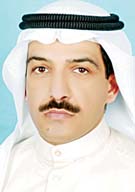26/10/2015
26/10/2015
 [dropcap]IT[/dropcap] is almost a truism that you cannot force some people to accept the dictates of democracy or allow it to flourish in their society. There are certainly individuals who might be verbal about their demands for more democratic freedoms, yet behave undemocratically in their daily life. Certainly, dictatorship and inflexible patriarchal regimes may play a major part in discouraging democratic developments, however, unless the national psyche of a society starts changing toward accepting democratic ideals, no serious democratic change will ever happen.
[dropcap]IT[/dropcap] is almost a truism that you cannot force some people to accept the dictates of democracy or allow it to flourish in their society. There are certainly individuals who might be verbal about their demands for more democratic freedoms, yet behave undemocratically in their daily life. Certainly, dictatorship and inflexible patriarchal regimes may play a major part in discouraging democratic developments, however, unless the national psyche of a society starts changing toward accepting democratic ideals, no serious democratic change will ever happen.
For example, many have thought that the so-called Arab Spring will bring a positive democratic change to some Middle-Eastern societies; however, the historic and engrained general ways of thinking continue to dominate private and public discourses in the ME.
For instance, instead of spreading messages of peace, tolerance and the acceptance of difference within Arab societies, religious, extreme pan-Arab political groups started to grab any available opportunities to marginalize their opponents. The same process of intentional sidelining of political of opponents in the new realities of the Arab Spring rooted further sectarian and racial differences in the Middle East.
One can certainly ask the following question about the outcome of the Arab Spring: Did the political upheaval in the aftermath of the Arab Spring lead to the uprooting of already entrenched cultural, sectarian and racial prejudices in the Middle East? I would argue that the political turmoil resulting from the few revolutions in the Arab world did not initiate a corresponding change in the general Arab public mind and psyche. The rise of the sectarian and chauvinistic racial discourses in some Arab Spring countries underline the root of the problem in the region: religious, sectarian and racial discrimination against non-Arab minorities are deeply rooted in a large section of the Arab mind.
Unless a moderate secular state which promotes democratic ideals start to represent a model for democratic success, some parts of the region might drown further in civil strife.
The term secular comes from the Latin “saeculum” which means an age or a generation. Being “secular” refers to being “civil” rather than being ecclesiastical.
Moreover, secularism may also refer to “pertaining to this world or the present life” (Webster 1138). It has become quite easy for religious fanatics in Islamic societies to describe those Arab and Muslim intellectuals with liberal tendencies as being secular; therefore attempting to ostracize them from society. Liberal Muslim and Arab intellectuals seem to pose a serious threat against the exploitation of religious discourses in society.
One can remain a devoted Muslim while at the same time continue to ask for the separation of religious institutions from the political arena. Religion and spirituality are very private domains of human activities. One’s faith, religion and spiritual preferences will not prevent individuals from fulfilling their roles as law-abiding, peace-loving and civilized citizens.
The gradual introduction of moderate secularist thoughts into the public discourse about effective democratic practices in the region is a step in the right direction. In fact, secularism with its emphasis on social equality, good citizenship, equality before the law, and the protection of minorities’ rights would contribute in developing a civil, and a more constructive democratic discourse in the post-Arab Spring Middle East.
By Khaled Aljenfawi


